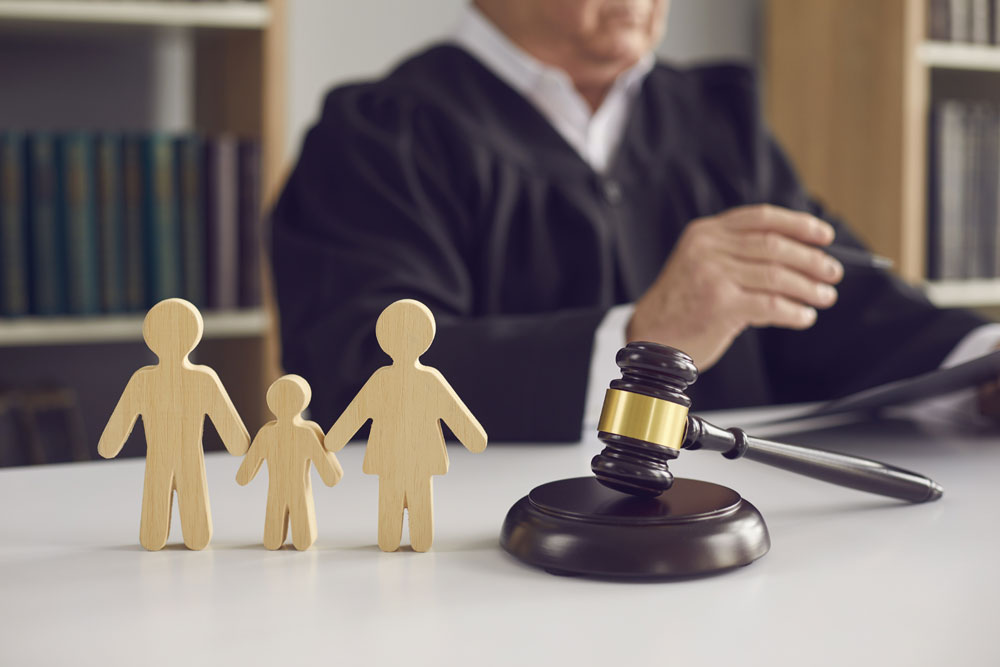Child Custody in South Carolina
The two main types of custody are legal custody and physical custody. Legal custody deals more with decision-making regarding the minor child. Physical custody deals with which parent the child is going to physically be with.
Child Custody in SC Overview
The first major determination is between legal custody and physical custody. There are different types of legal custody and different types of physical custody.
Legal Custody
Legal custody can be sole custody or joint custody. Sole legal custody means that one parent is going to make the major decisions regarding the child. Major decisions usually include medical, educational, religious, and extracurricular activity decisions. Generally in a sole custody arrangement, there is no legal obligation to speak with or discuss the major issues with the other parent prior to the parent with sole custody making decisions. It is one parent with the ability to unilaterally make decisions regarding the minor child.
Physical Custody
There can be different arrangements for physical custody based on what is in the best interest of the child. These arrangements can include shared custody, split custody (if there is more than one child), and sole custody. Each of these can have varying amounts of parenting time with each parent.
Joint Custody
Joint custody involves the parents working together to make certain decisions for the minor child. The parents are obligated to discuss major decisions prior to making them and work together in good faith to arrive at a decision regarding what is best for the child. In a strictly joint custody situation, if the parents can not agree, they may be required to attend a certain amount of mediation to try to come to an agreement or go back to Court. This is generally not a practical way to make decisions.
In other joint custody situations, one parent can be primary and the other parent can be secondary. The parent with primary joint custody will still have an obligation to discuss major decisions with the other parent and try in good faith to come to an agreement. If the parties cannot come to an agreement, the parent with primary custody has the authority to make the final decision. In some situations, one parent may have primary decision-making authority over some decisions, for example medical and religious decisions, and the other parent may have primary decision-making authority over other decisions, for example educational and extracurricular activities.
Common Questions About Child Custody in SC
Now that you have a basic understanding of child custody, below are answers to some frequently asked questions and some links to other articles.
1. What is child custody?
Child custody is the determination by a South Carolina Family Court as to which parent has the responsibility and right to provide physical care and make important decisions for a child. There are different types given the situation, and a Court does not make this decision lightly.
2. Is custody different from visitation?
Yes, custody is much different from visitation. Custody is the permanent living situation, while visitation is for those visitors who are allowed to spend time with a child.
3. How does child custody work?
There are two main determinations for child custody – who the child lives with and who gets to make important decisions for the child.
Legal custody refers to the parent who can make decisions for the child, like medical decisions, educational decisions, etc. Physical custody refers to the person who the child lives with. These custodial determinations may be shared between both parents, or lie with one parent alone.
4. How do I file for child custody?
You file for custody by filing a Summons and Complaint to begin a Family Court case and asking the Court to grant the relief you are seeking. Filing a Summons and Complaint is not as simple as it sounds, but it is how a Family Court case begins.
5. How is child custody determined?
The Court will often look to who has been the primary caretaker of the minor child, but the ultimate decision will be based on what is in the best interest of the minor child.
6. What is a “Guardian ad Litem’s” role in a custody case?
A Guardian ad Litem (GAL) will be the voice for the minor child in the case. Children are usually not called to testify, so the GAL will speak for them. The GAL will investigate what is the best interest of the child and will report back to the Court on what s/he finds during his/her investigation.
7. Will the police enforce child custody?
Sometimes. Generally the police do not enforce Family Court orders. Contempt of court is how the Court enforces its Orders. Law enforcement is unable to determine whose weekend is whose or when the child was with the other parent last. It’s really not their job to do that. Law enforcement will generally not get involved in custody unless there is some extenuating circumstance.
If your child’s other parent is not following the Court order, you can file a Rule to Show Cause which is a document filed with the Court saying someone has violated the order and should have to come to Court to explain why s/he should not be held in contempt of court.
8. Can a father get awarded child custody?
A father can get awarded child custody. There used to be a “Tender Years Doctrine” which said that during the early years of a child’s life, the child should be with the mother. That doctrine no longer exists. Abolishing the “Tender Years Doctrine” makes it a lot easier for a father to get custody. It puts parents on an even playing field.
9. How long do child custody cases take?
Custody cases can drag on for months, even more than a year sometimes. If the parties agree, the time is often much less. If the parties cannot agree and the case has to be tried, that can cause significant delay. One thing to remember is to be patient.
10. Can child custody be changed?
Yes, child custody can be modified based upon there being a substantial change in circumstances related to the child. Child custody can also be modified based upon mutual agreement.
11. How do I win a child custody case?
The first thing you should do is hire competent legal counsel. It’s hard to say someone is going to “win”. Think of it as determining the best situation for your child or children, not in terms of winning or losing. At the end of the day, there are two parents and one child and time is likely going to be split between the two parents. There are only so many hours in a day.
When it comes to a custody case it will be a compromise in most situations. Again, one parent is not going to have the child 100% of the time unless the other parent is unfit. Take good notes when it comes to interaction with the other party, things like how often children see the parent, talk to the parent, parent provides financial help, etc. These notes may end up being helpful during your court case.
12. Do I need a child custody attorney to win my custody case?
It is a very good decision to hire an attorney in a custody case. This is one of the most important events in your life. Once a decision is made, you can only get it changed based on a substantial change in circumstances. You want to get it right the first time.
Family law can be hard to understand and is heavy on case law, which can make it very hard to navigate. Find someone you trust and can easily work with.
Have questions about your child custody case?
Every situation is different. There is no way I could include all the answers to every single situation in this article. That is why it is important to get legal advice from an attorney that you are comfortable with and who regularly practices family law. You generally get one bite at the apple absent a change in circumstances. Make sure you are adequately represented.
If you need a family court attorney, Jennilee W. Pirtle, Attorney at Law, LLC is here to help. Use this form to contact our office or call (843) 970-2929.
Questions? Speak With Jennilee.





Recent Comments